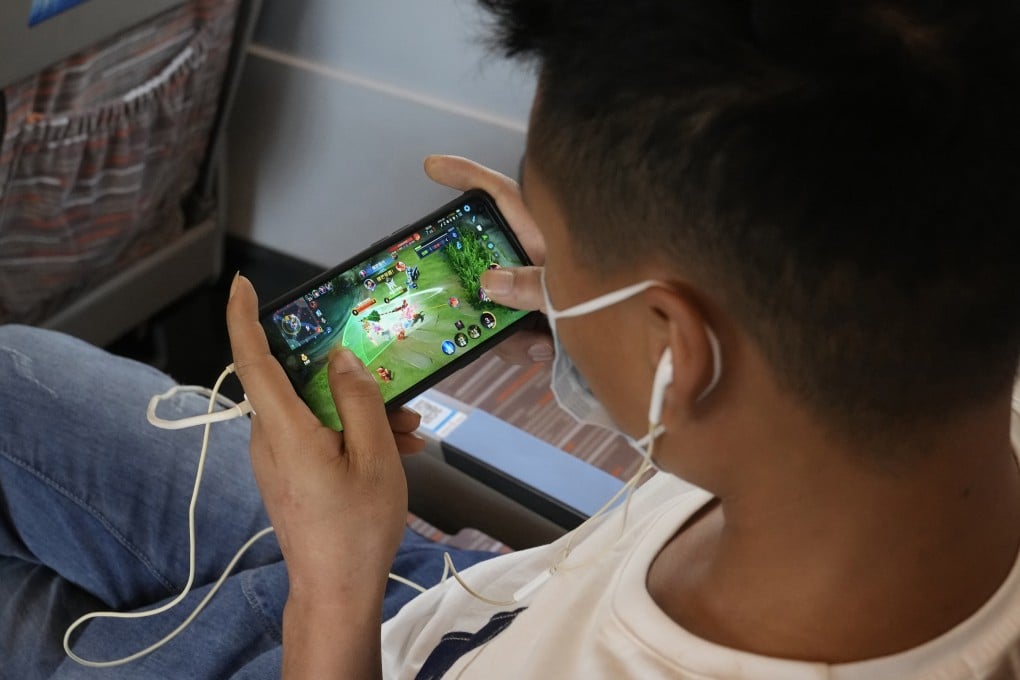Advertisement
China’s video game companies vow to boycott overseas platforms and close loopholes for young gamers amid tighter limits
- China’s video game industry association and 213 gaming companies, including Tencent and NetEase, pledged to crack down on access to overseas platforms
- The pact is not legally binding, but it puts in writing a pledge to remove content targeted by authorities such as ‘effeminate men’ and money worship
Reading Time:2 minutes
Why you can trust SCMP
1

China’s state-backed gaming industry association and 213 video gaming companies, including Tencent Holdings and NetEase, issued a self-regulation pact on Thursday, pledging to follow Beijing’s mandate to fight video game addiction by filtering unhealthy content and boycotting overseas platforms.
In a blog post published on WeChat, the China Game Publishers Association Publications Committee (GPC) published the Online Gaming Industry Anti-Addiction Self-Regulation Convention, with buy-ins from gaming companies across the country. GPC is the gaming arm of the China Audio-video and Digital Publishing Association, a group that answers directly to the Communist Party’s propaganda department.
The document professes the companies’ commitment to incorporating anti-addiction features into video games. This also applies to single-player and console games, which have not traditionally been considered as addicting as “internet games”, like the free-to-play mobile titles played with strangers online that have become so popular. Companies are also pledging to stop offering account rentals and gaming companion services to young players.
The document asserts companies commitments to ban various types of content recently targeted by authorities, including “effeminate men”, money worship and “gay love”. Content deemed “politically harmful” or “historically nihilistic” will also be boycotted. The same goes for games with mechanics considered to be only designed to generate profit or traffic.
Advertisement
The companies said that they will “resolutely boycott circumventing regulatory procedures and using overseas gaming platforms to provide services to domestic users”. If strictly enforced, the measures would plug a hole in a legal grey area that many developers have used to reach Chinese gamers from overseas because of the huge hurdles to getting titles approved for sale in the country.
The convention comes after the National Press and Publication Administration (NPPA) introduced China’s most stringent measure yet to tackle video game addiction. The new rule limits gaming time for players under the age of 18 to 8pm to 9pm on Fridays, Saturdays, Sundays and statutory holidays.
Advertisement
While the document is not legally binding, it is something the industry can refer to in the future, said Charles Yu, head of Pillar Legal’s Shanghai office. The part about overseas platforms could be especially impactful, according to Yu.
Advertisement
Select Voice
Select Speed
1.00x